Saturday In Budapest
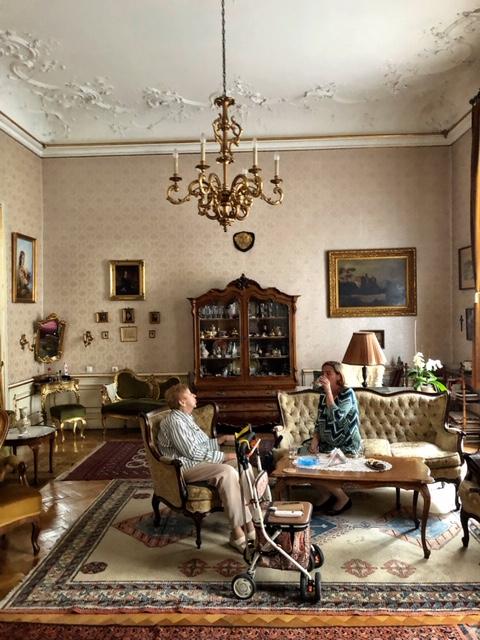
Isn’t that a pretty image? It’s a shot of Mrs. Erzsèbet Kelecsènyi, a retired Budapest lawyer, speaking to my friend and interpreter Anna Salyi, in the living room of Mrs. Kelecsènyi’s grand old apartment near the city center. It’s a pretty magical place, I think; I kept thinking of the room — those ceilings must be 20 feet! — decorated for Christmas and filled with her grandchildren. I interviewed her today for my book about communism.
Here’s a portrait of Mrs. K., who was so welcoming to us:
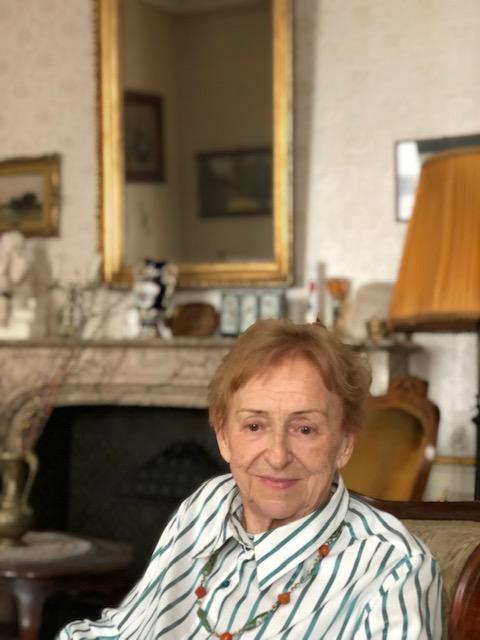
She was the first interview of the Hungary part of my trip — if you don’t count the question I got to ask Viktor Orban in a Friday afternoon meeting at Buda Castle, but that’s a forthcoming post. The interview was arranged by Anna, who is coordinating them and translating for me. She and I met up at Central Cafe for lunch before heading over to Mrs. K’s. Here’s Anna, whose hard work for my project I especially appreciate because she’s pregnant with her and her husband Ormos’s second child, and it can’t be easy taking a visiting writer around Budapest:
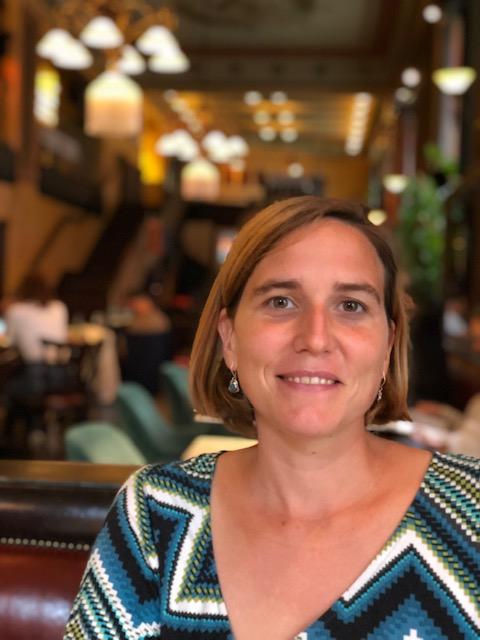
If you must know, I had the chicken paprikash and a crisp Hungarian Riesling:
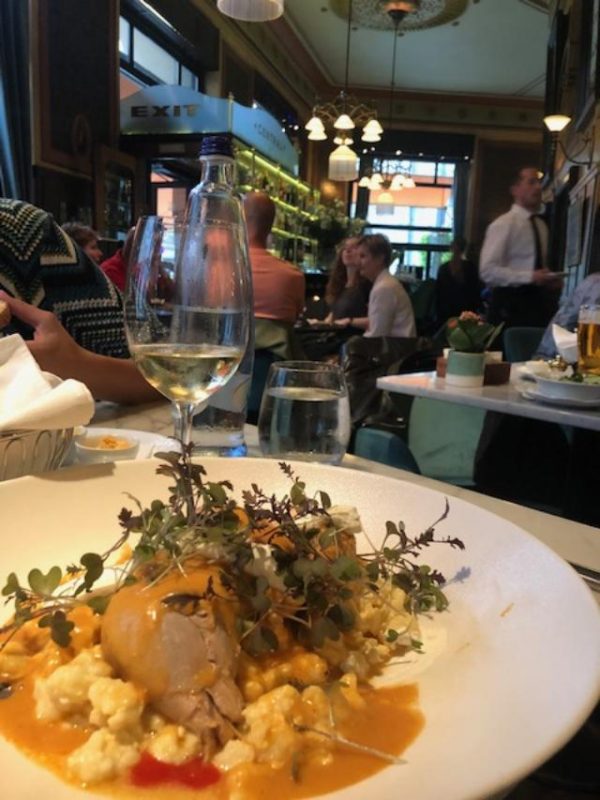
Alas, they didn’t have the full menu for lunch, just a short one. Too bad, because I would have eaten the pooyah out of the duck liver mille feuille. For dessert, Self ate the flodni, a traditional Jewish Budapest cake made from layers of apple, walnut, poppy seeds, and plum, separated by sweet pastry. It tasted like autumn:
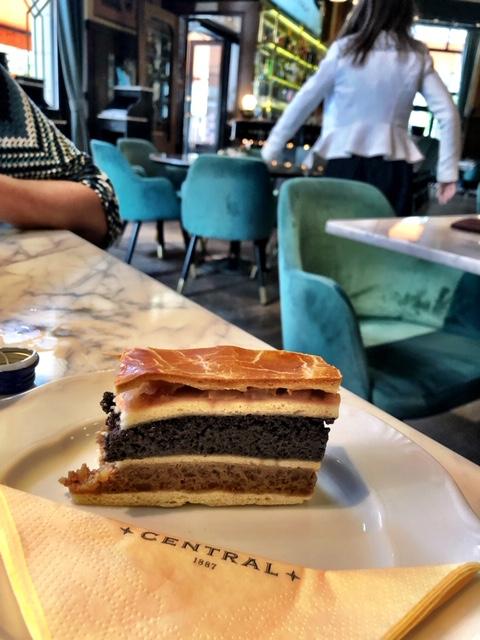
What a great city this is! This evening I interviewed Anna’s parents, Tomas and Judit, both of whose fathers were political prisoners under Communism. It’s hard to reconcile the beauty and grace of these Budapest meals and domestic interiors with the hideous suffering Communists inflicted on the people of this country.
Judit’s father, for example, was diagnosed as insane by Communist physicians, because under the principles of Soviet psychiatry, political dissidents were by definition crazy. What had he done? In 1968, after visiting northern Romania and witnessing how horribly oppressed the ethnic Hungarians there were under the Ceausescu regime, Judit’s father tore down an image of the Romanian dictator on display in Budapest, and stomped it. For that, he was thrown into prison and administered 50 electroshocks over the course of his imprisonment. This left him mentally incapacitated, and permanently disabled. It destroyed his life.
Judit, who teaches at a local Catholic university, told me:
It has been a constant struggle for me to make people acknowledge what happened to my father. People don’t want to listen. They don’t want to know about that. Whether you live under oppression or not, it’s an ongoing and constant struggle for truth. Most people, or at least the average person, regards courage and high moral standards as a glitch, or a defect, or as superfluous. It has always been the privilege of the few to live by these values.
She added that she always tells her father’s story to her students at the university, because she considers it a sacred responsibility to tell the young what Communism meant. She had this message for my readers: Tell these stories.
More interviews tomorrow.

Subscribe for as little as $5/mo to start commenting on Rod’s blog.